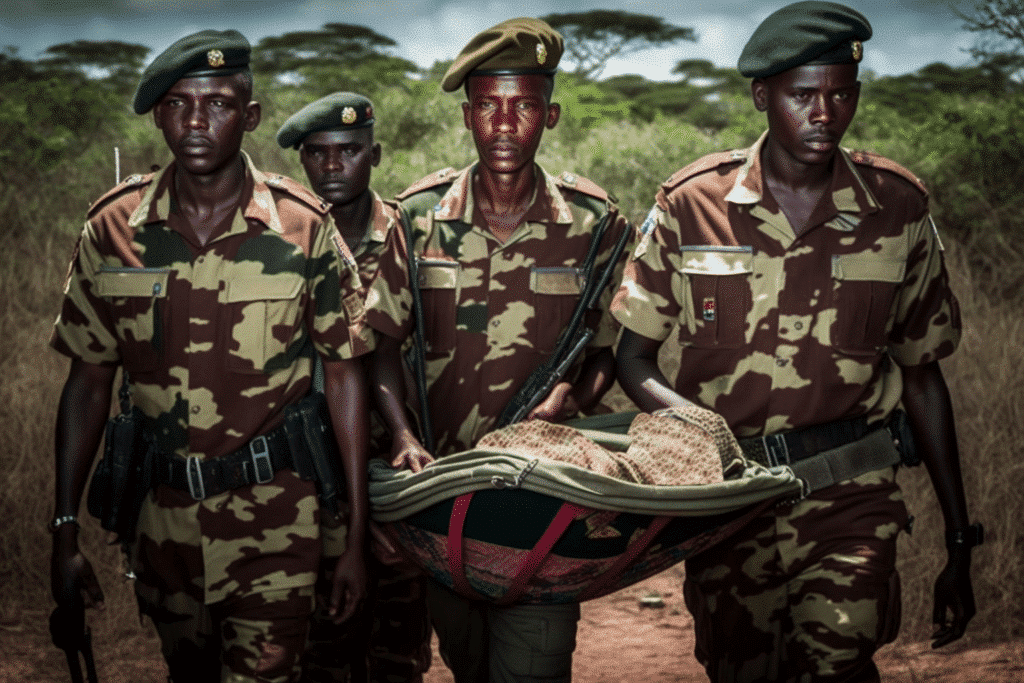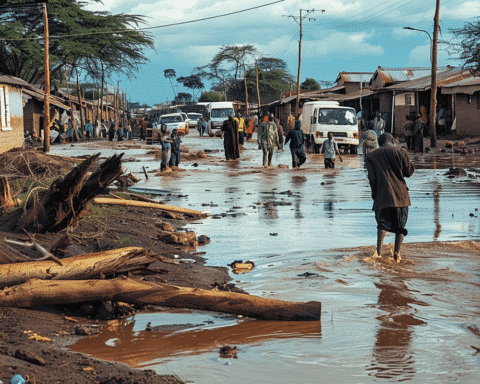Kenyan President William Ruto declared on Monday that the starvation deaths of dozens of followers of a self-proclaimed pastor in the south of the country are comparable to terrorism.
Ruto emphasized that the pastor, Paul Makenzi, currently in police custody, deserves imprisonment rather than affiliation with any religion. “Mr. Makenzi… masquerades as a pastor, but in reality, he is a heinous criminal,” said Ruto.
Makenzi was suspected of encouraging his followers to fast to death to meet Jesus. While a group of malnourished individuals was rescued alive, several later succumbed to death. Authorities subsequently discovered numerous shallow graves on Makenzi’s property.
The death toll has reached 47, with 39 bodies exhumed over the weekend, according to Inspector General of Police Japhet Koome, surveying the area.
On Sunday, the Kenya Red Cross Society reported that 112 people had been registered as missing at a tracing desk in Malindi, where Makenzi’s primary church was situated.
President Ruto has directed law enforcement agencies to thoroughly investigate the incident as a criminal case, separate from any religious associations.
Ruto, elected in 2022, is known as the nation’s first evangelical Christian president and has been open about his faith, even praying and weeping in churches before his election. He has appointed several pastors to parliament and government agencies, such as the anti-corruption commission.
Makenzi remains in custody, with the court granting investigators an additional two weeks to continue their inquiry into the deaths of his followers.
Police have been unearthing bodies in shallow graves, marked with crosses, on Makenzi’s 800-acre ranch in the Shakahola area of Kilifi County.
Previously arrested twice in 2019 and March this year concerning child deaths, Makenzi was released on the bond each time, with both cases still in progress. Local politicians are now urging the court to deny his release, expressing concern over the proliferation of cults in the Malindi region.
Cults are prevalent in Kenya, a predominantly religious society.
As the investigation into the tragic cult-related deaths continues, Kenyan authorities and organizations are stepping up their efforts to address the issue of cults in the country. Law enforcement agencies collaborate with religious leaders and civil society organizations to identify and dismantle dangerous cults and educate the public on their risks.

Public awareness campaigns are being launched to educate citizens on the warning signs of cults and how to report suspicious activities. Authorities are also working on improving the monitoring and regulation of religious institutions to prevent the formation of cults and ensure transparency in their operations.
Kenyan religious leaders are playing a crucial role in this endeavour, condemning the activities of cults and urging their followers to remain vigilant against any attempts to manipulate them. They actively participate in interfaith dialogues to promote understanding, tolerance, and unity among religious groups.
The government is also considering implementing stricter regulations for religious organizations and leaders, with mandatory background checks, registration requirements, and regular inspections. This would help ensure the legitimacy and accountability of religious institutions, reducing the likelihood of cults taking root.
As the nation grapples with the aftermath of cult-related deaths, it is clear that a multi-faceted approach involving collaboration between the government, religious leaders, and civil society is necessary to effectively combat the growing threat of cults in Kenya.
While the country works to address this issue, the tragic incident is a stark reminder of the potential dangers posed by cults in Kenya and other parts of the world. It emphasizes the importance of vigilance and awareness in protecting communities from the insidious influence of these groups.




